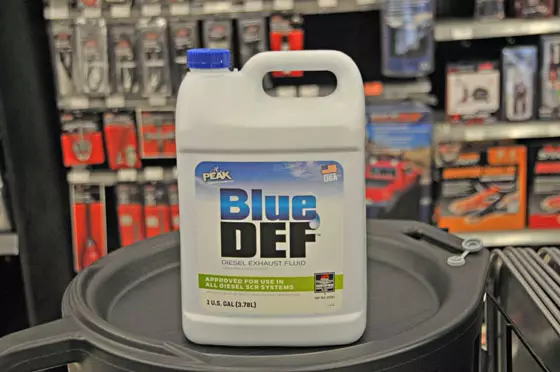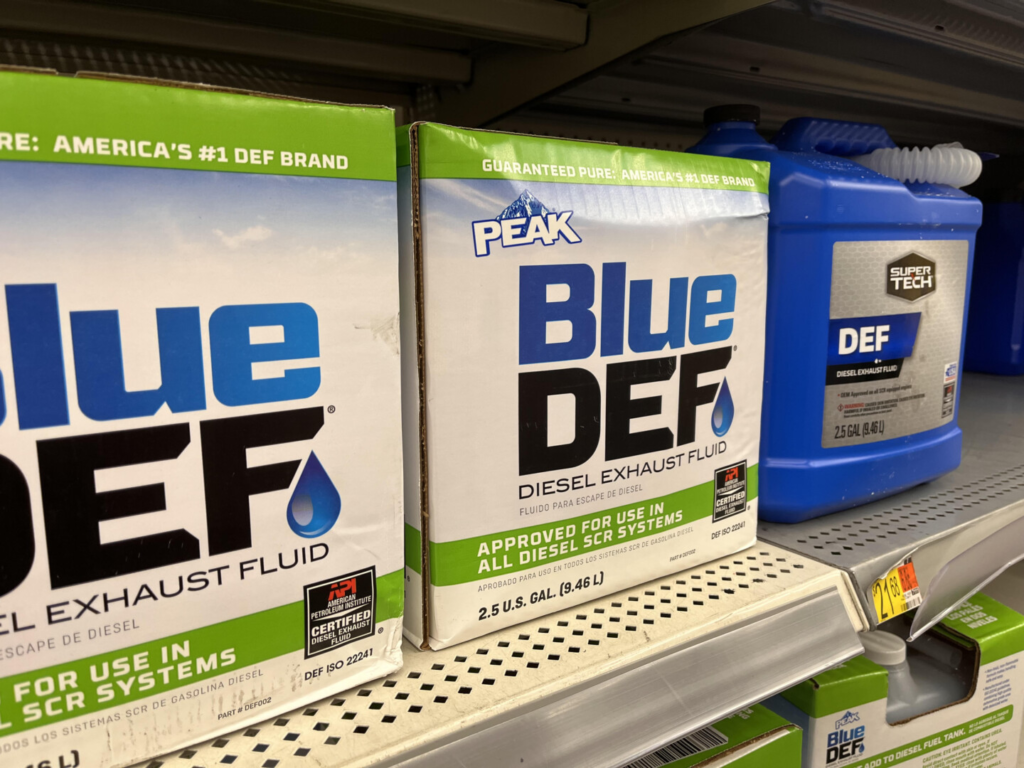Understanding DEF Fluid: A Comprehensive Guide to Diesel Exhaust Fluid 2024

Introduction to DEF Fluid: What It Is and Why It Matters
DEF fluid, short for Diesel Exhaust Fluid, is a crucial component in modern diesel engines designed to reduce harmful emissions. This colorless, non-toxic solution plays a pivotal role in meeting stringent environmental regulations by minimizing nitrogen oxide (NOx) emissions from diesel vehicles. Whether you’re a fleet manager, truck owner, or simply curious about sustainable automotive solutions, understanding DEF fluid is essential.
In this guide, we’ll dive deep into everything you need to know about DEF fluid, including its composition, benefits, storage, and much more.
How Does DEF Fluid Work?
The magic of DEF fluid lies in its integration with the SCR system:
- Injection into Exhaust Stream: DEF fluid is sprayed into the exhaust gases of a diesel engine before they pass through the SCR catalyst.
- Chemical Reaction: The high heat in the exhaust causes DEF fluid to break down into ammonia and carbon dioxide.
- Emission Reduction: Ammonia reacts with nitrogen oxides to form nitrogen and water, harmless substances that are released into the atmosphere.
This process is seamless and automatic, ensuring diesel vehicles meet emission standards without compromising performance.
The Composition of DEF Fluid

The simplicity of DEF fluid’s composition is key to its effectiveness:
- High-Purity Urea: Derived from synthetic ammonia and carbon dioxide, urea is critical for the chemical reactions in the SCR system.
- Deionized Water: Ensures that no impurities interfere with the performance of the SCR system.
This precise 32.5% urea-to-water ratio ensures optimal functionality under various conditions.
Importance of DEF Fluid in Reducing Emissions
Nitrogen oxide (NOx) emissions are among the most harmful pollutants produced by diesel engines. They contribute to:
- Smog Formation: NOx reacts with sunlight to produce ground-level ozone.
- Acid Rain: Combines with water vapor to create acid rain.
- Respiratory Problems: Prolonged exposure can lead to severe health issues.
By converting NOx into nitrogen and water, DEF fluid helps mitigate these problems and ensures compliance with environmental laws like Euro 6 and EPA standards.
The Role of SCR Systems in Using DEF Fluid
Selective Catalytic Reduction (SCR) systems are the backbone of DEF fluid usage. They consist of:
- DEF Tank: Stores the DEF fluid.
- Dosing Module: Sprays precise amounts of DEF into the exhaust stream.
- SCR Catalyst: Facilitates the chemical reactions that reduce NOx.
The SCR system is designed to work harmoniously with DEF fluid, ensuring that emission levels remain within legal limits while maintaining engine efficiency.
Benefits of Using DEF Fluid
Using DEF fluid brings numerous advantages:
- Emission Reduction: Significantly lowers harmful NOx emissions.
- Improved Fuel Efficiency: Engines equipped with SCR systems often achieve better mileage.
- Regulatory Compliance: Ensures vehicles meet government emission standards.
- Enhanced Sustainability: Contributes to cleaner air and a healthier planet.
How to Properly Store DEF Fluid
Proper storage of DEF fluid is crucial for maintaining its effectiveness:
- Temperature Range: Store between 12°F (-11°C) and 86°F (30°C). Extreme temperatures can degrade the solution.
- UV Protection: DEF fluid should be kept in opaque containers to avoid degradation from sunlight.
- Contamination-Free Environment: Ensure storage containers are clean and sealed to prevent impurities.
When stored correctly, DEF fluid has a shelf life of up to two years.
Signs of DEF Fluid Contamination
Contaminated DEF fluid can lead to serious issues in the SCR system. Watch out for these signs:
- Check Engine Light: This may indicate SCR system malfunction due to contaminated DEF fluid.
- Crystallization: White deposits in the DEF tank or lines.
- Unusual Exhaust Emissions: Visible smoke or odors from the exhaust.
Regular maintenance and use of certified DEF fluid can prevent contamination.
When and How to Refill DEF Fluid

Refilling DEF fluid is a straightforward process:
- Locate the DEF Tank: Usually marked with a blue cap.
- Use Certified DEF: Only use products labeled with ISO 22241 certification.
- Avoid Overfilling: Follow manufacturer guidelines to prevent spills.
Most diesel vehicles have dashboard indicators to alert you when DEF fluid levels are low, ensuring you never run out unexpectedly.
Common Myths About DEF Fluid
Let’s debunk some misconceptions:
- Myth 1: DEF fluid is harmful to the environment.
- Fact: It reduces harmful emissions and is biodegradable.
- Myth 2: DEF fluid damages engines.
- Fact: It works outside the engine, in the exhaust system.
- Myth 3: Any urea solution can replace DEF fluid.
- Fact: Only high-purity urea and deionized water meet SCR requirements.
How DEF Fluid Impacts Engine Performance
Contrary to popular belief, DEF fluid can enhance engine performance by allowing diesel engines to operate more efficiently. With reduced emissions, engines face less back pressure, leading to improved fuel economy and power output.
The Cost of DEF Fluid: Is It Worth It?
The cost of DEF fluid is a small price to pay for its benefits:
- Affordable Pricing: DEF fluid is reasonably priced, especially when purchased in bulk.
- Reduced Maintenance Costs: Cleaner emissions mean less wear and tear on the engine and exhaust system.
- Environmental Savings: A cleaner environment has long-term economic benefits.
Environmental Benefits of DEF Fluid
DEF fluid contributes significantly to environmental sustainability by:
- Reducing Air Pollution: Lower NOx levels mean cleaner air.
- Supporting Renewable Practices: Many DEF production methods use eco-friendly resources.
DEF Fluid Standards and Certifications
Look for these certifications when purchasing DEF fluid:
- ISO 22241: Ensures purity and performance.
- API Certification: Verifies adherence to industry standards.
Certified DEF fluid guarantees optimal performance in SCR systems.
FAQs About DEF Fluid
- What vehicles require DEF fluid?
Most modern diesel vehicles with SCR systems, including trucks, buses, and agricultural equipment, use DEF fluid.
- Can I mix different DEF brands?
Yes, as long as both are certified to ISO 22241 standards.
- What happens if I run out of DEF fluid?
Most vehicles will reduce engine performance or prevent operation until the DEF tank is refilled.
- Can DEF fluid freeze?
Yes, but it can thaw without losing its effectiveness.
- How often should DEF fluid be refilled?
This depends on your vehicle’s DEF consumption, typically every 3,000–5,000 miles.
- Is DEF fluid safe to handle?
Yes, it is non-toxic and safe to handle with proper precautions.
Conclusion: The Role of DEF Fluid in a Cleaner Future
DEF fluid is more than just a solution for diesel engines—it’s a key to a cleaner and more sustainable future. By reducing harmful emissions, enhancing engine performance, and complying with environmental standards, DEF fluid is a game-changer in the automotive industry. Whether you’re managing a fleet or driving a personal diesel vehicle, embracing DEF fluid ensures you’re doing your part for the planet.



